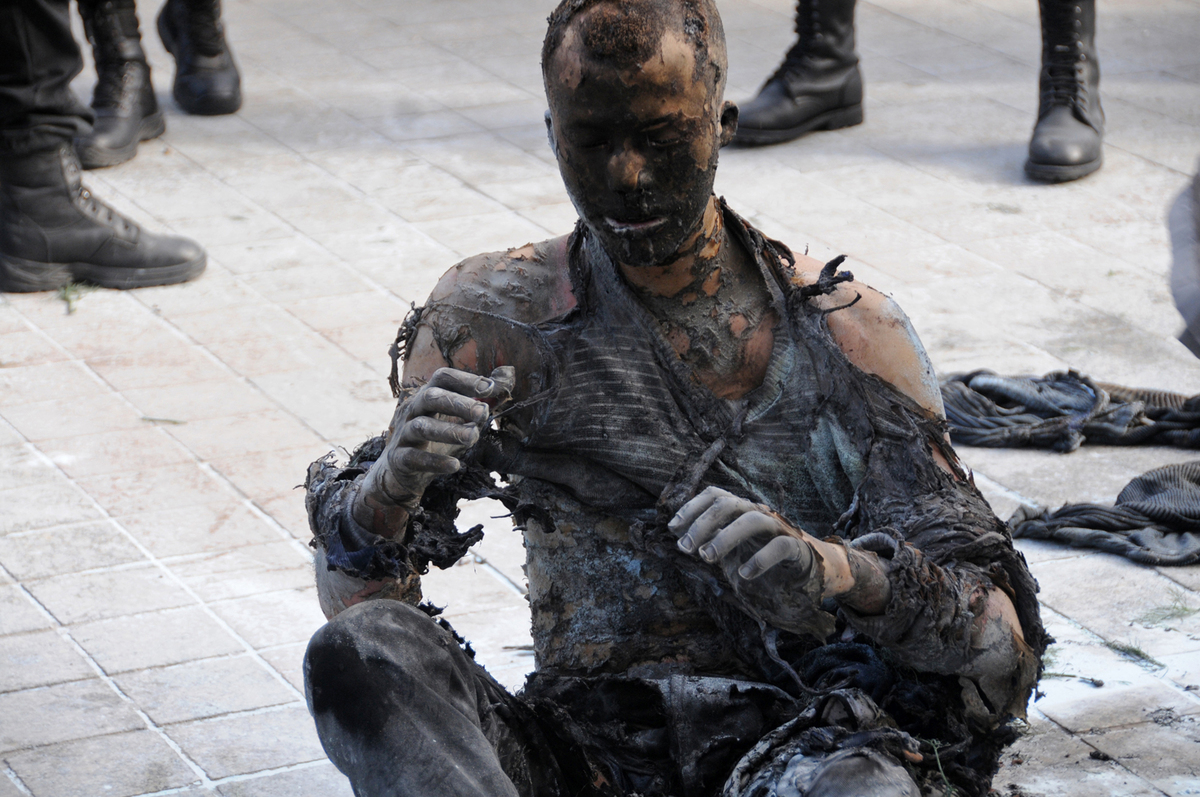 |
Prime Minister Ali Larayedh (left) recently met with coalition leadership.
|
The new team consists of Ennadha, Ettakatol (a moderate-left party), and Congress for the Republic (a secular party) and will include independent ministers for the interior and justice ministries. This kind of government cooperation could persuade dissatisfied citizens that their government is finally working for them - people want to know that they are being represented. Perhaps Adel Khedri's death by self-immolation represents a sort of sad symmetry, and the chaos in Tunisia will end as it began. Unfortunately, until unemployment, poverty, and religious tensions are addressed, Tunisia will stand on shaky ground.
 |
Tunisian cigarette vendor, Adel Khedri, died today after
self-immolating yesterday over frustrations with unemployment.
|
It will be interesting to see how the new government can work well together by balancing two coalitions and two independents who will be the interior and justices ministers. The people might see this as an opportunity for more representation but it could pose collective action problems. Tunisia needs to stabilize its society and its politics. As a transitioning country, it will imperative to have a working government in order to support its people.
ReplyDeleteI think this is a very important step for forming a government whose actions will represent a social consensus. I think it bodes very well that Ennadha, which came out on top in the initial election due to its organizational head start, was willing to give up its position and form a new coalition government. This is a vital step in calming down factional tensions, forming a more cohesive society, and developing a truly democratic government.
ReplyDeleteALthough this may be the light at the end of the tunnel, it could also pose as a brick wall instead. It is great that the Ennadha have taken what seems to be a realistic step to form this coalition to calm the people and the factions unrest. This may end up being detrimental with the possibility of the elites within the coalition government being unable to agree upon vital legislation and policy. If this is to happen, not only will it cause a deeper polarization between the government elite but it will also fuel negative sentiments and greater polarization between the people's factions.
ReplyDeleteI think something really interesting about the Tunisia case is how the initial case of a citizen setting himself on fire brought out such a strong feelings of frustration,anger, and resentment towards the state, yet this most recent incident of the same thing has garnered less attention in the media. I feel as if the fatigue of this long drawn out battle for change is starting to wear on the people. The state may be claiming progress but the people are not fools and see that the "change" has not yet brought any benefits to them.
ReplyDeleteI agree with your contention that newly appointed Prime Minister's coalition govt. and continued focus on the democratic process holds great hope for the people and country for Tunisia. However, what happens if this coalition govt. fails again? There remains a serious debate, similar to other MENA countries, about the role that religion will play in the Constitution and eventually the state. Do you think that this issue will continue to plague the country? Also, much of the criticism surrounding Chokri's death came about from the lack of Ennhada refusing to crack down on Islamist extremist groups and their promotion of violence; it will be interesting to see if this newly created govt. can counteract the short-term backsliding and quell recent uprisings in the country.
ReplyDeleteThe "new" coalition is the same parties represented after the initial elections in 2011. There has been a small reshuffling of the deck as far as individuals, but definitely no new start for Tunisia. Nidaa Tounes' democratic coalition, which is polling neck-and-neck with Ennahda, is not represented through any of the heads of state or ministers. CPR and Ettakatol have both continually lost support since 2011, seen as weak and condemned by many for compromising so much with Ennahda. Both the 2011 government and the 2013 government are Ennahda-CPR-Ettakatol coalitions, so I don't see this bringing any new start for Tunisia.
ReplyDelete